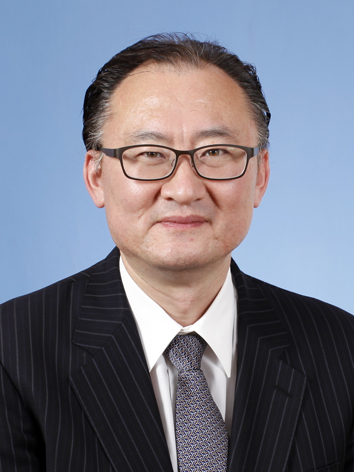Many in Korea have called for a shift in the government’s policy toward Japan since the beginning of this year, which marks the 50th anniversary of the normalization of diplomatic ties between the two countries. They argue that Korean President Park Geun-hye’s first-ever summit with Japanese Prime Minister Shinzo Abe on Nov. 2 must mark a turning point for strained relations. Yet, doubts remain: Would Japan change its policy towards Korea if Korea does toward Japan?
 |
Professor Hwang Jae-ho |
“Walk alone like a rhinoceros,” reads a passage from an ancient Buddhist script, a metaphor for going one’s own way. The Park administration should “go its own way” when it comes to its Japan policy. Seoul needs to keep its current relations with Tokyo from deteriorating any further rather than expecting a dramatic change for the better in its ties with Japan. Tokyo, indeed, will not change.
Japan no longer sees Korea as strategically valuable for its foreign policy. The Abe administration, in its early years, was willing to promote closer ties with Korea. Yet now, Seoul-Tokyo relations are secondary to Beijing-Tokyo ties. Japan wants to believe that Korea is already on the Chinese side. Letting Korea do so would also serve Japan’s interests. Tokyo can get what it wants by partnering with the U.S. Its half-hearted fence-mending efforts with Seoul come only out of consideration for Washington.
Since Prime Minister Abe was reelected, Japan, with its samurai-like determination, is gearing up for a rivalry with China. A real showdown lies ahead. Conflicts in the East China Sea are not mere territorial disputes per se. It signals the beginning of an earnest rivalry between the two powers. Japan has a last chance for a surprise upset before China consolidates its leadership while Abe and Chinese President Xi Jinping are both in office. Korea, in this sense, is not a decisive factor for Japan.
Diplomacy is the responsibility of a nation’s top leader. Korea’s current leader, as shown in domestic politics numerous times, sticks to principles and has a clear set of preferences. Against this backdrop, Seoul cannot pretend to be on friendly terms with Tokyo as if nothing has happened. Korea should ideally maintain friendly ties with all nations, but each administration has gone through difficult times with one certain country: with the U.S. under the Roh Moo-hyun administration; with China under President Lee Myung-bak’s rule; and with Japan under the current president. Seoul is better off sticking to principles, a move that would become an asset for its trustpolitik.
The success of Korea’s Japan policy depends on the U.S. Yet it would be naive for Korea to expect more attention from Washington. The U.S. is currently preoccupied with the strategic rebalance to Asia. Given that Abe is actively embracing U.S. interests, it is only natural for Tokyo to trump Seoul in U.S. foreign policy. Therefore, Korea should uphold its principles on issues of unresolved historical animosity, but, at the same time, it needs to change its focus. The sexual enslavement of Korean women by Imperial Japan during World War II is indeed an important issue. However, the Korean government should widen its frame of historical issues. Sticking to the “past” will only narrow Korea’s room for action in the U.S.-Korea-Japan triangle.
In a nutshell, Koreans should not be obsessed with producing results from the recent summit talks with Japan. Nor do they need to be frustrated with Abe’s failure to issue an apology during the summit. Seoul should not compromise its principles. There is no need for haste. Korea, in reality, is not in a favorable position. Therefore, in order to turn the table in its favor, Seoul has to have a cause that can beat others’. This also brings practical benefits for Korea. It should “go its own way” like a rhinoceros.
By Hwang Jae-ho
Hwang Jae-ho is a professor in the division of international studies at the Hankuk University of Foreign Studies and director of the university’s Global Strategic Cooperation Center. –Ed.








![[Today’s K-pop] Blackpink’s Jennie, Lisa invited to Coachella as solo acts](http://res.heraldm.com/phpwas/restmb_idxmake.php?idx=644&simg=/content/image/2024/11/21/20241121050099_0.jpg)